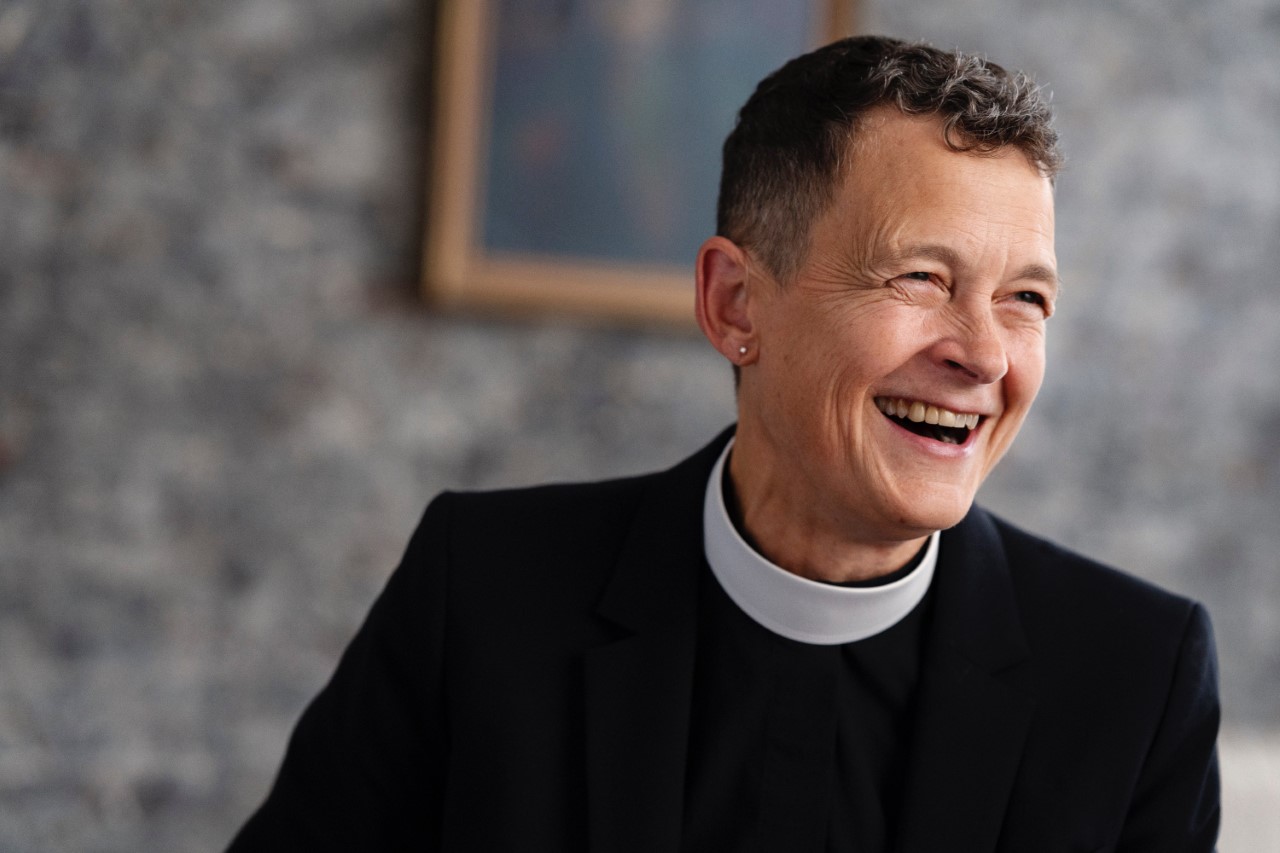Sounding Queer Holiness on the Eve of Disaster
Jeremiah 38. 1-13
Judah was barreling toward catastrophe.
Recently freed from the grip of the Assyrian empire, consumed by giddy nationalism, Judah whipsawed between two competing visions of what it meant to be God’s people. The Mosaic covenant established at Sinai was clear: if the people wanted to thrive, they had to follow God’s commandments. But Judah also yearned for the bygone days of King David’s glorious rule, remembering God’s promise of perpetual support for the Davidic monarchy. Adherence to covenantal faith fell victim to self-assurance that Yahweh would support the king in Jerusalem no matter what. Commitments to justice, radical hospitality, and care for the marginalized fell by the wayside. In their homes, many people casually adopted cultic practices associated with other gods. Politically-connected prophets assured people that they could follow nationalistic impulses with impunity as long as it was all done in God’s name.
Onto this stage stepped Jeremiah, who saw that these competing visions had been vastly oversimplified. Covenant theology was presented to the people as a simple quid pro quo. Davidic theology was breeding false piety and delusional notions of prosperity. Both decentered the fundamental relationship that Yahweh yearned for: a relationship of passionate, steadfast love. Jeremiah pleaded with Judah to open their hearts, to understand that their idolatry was experienced by God as excruciating infidelity.
Covenant theology was presented to the people as a simple quid pro quo. Davidic theology was breeding false piety and delusional notions of prosperity. Both decentered the fundamental relationship that Yahweh yearned for: a relationship of passionate, steadfast love.
The book of Jeremiah is a literary masterpiece, painting evocative images crafted into metaphors of nuance and power. But what most stands out in Jeremiah is his vivid rendering of the agony of an abandoned heart.
Early chapters in Jeremiah contain disturbingly misogynistic metaphors in which Judah is described as an unfaithful wife who must be punished. Though problematic, Jeremiah is queering gender roles to make a point. God wants to reach the hearts of Judean men: “Imagine how awful it would feel if your wife behaved like this. This is what you are doing to me!”
Enraged, God pledges to destroy Jerusalem. In passages of torrential anger, we witness the “wrathful God” that so many Christians mistakenly describe as characteristic of the Old Testament. Underneath that fury is a God desperately in love, issuing plea after plea for Judah to come back. God’s love is so fierce that even amidst vows of disaster, God cannot hold back a promise of reconciliation with Judah. God’s assurances of restoration and peace are as tender as the threats of doom are terrifying.
Walter Brueggemann describes Jeremiah as “a crisis-driven tradition.” On the eve of destruction, Jeremiah issues a paradoxical message that utters “sounds…of holiness in the midst of disruption…sounds from the Holy One that summon to honesty and to hope.”[1]
This is a queer message indeed. “Queer” in that it disrupts false binaries – in this case, the binary of hope and despair. Jeremiah insists that God is fiercely present even when the situation is bleakest. His message is directed to people who possess a faith queer enough to handle its complexity – to people who are themselves queer enough, sexually or theologically, to endure the disruption of cataclysmic times precisely because we never lose sight of the sacred power that undergirds our lives.
This is a queer message indeed. “Queer” in that it disrupts false binaries – in this case, the binary of hope and despair. Jeremiah insists that God is fiercely present even when the situation is bleakest.
Jeremiah’s heart is just as much on the line as God’s, and his agony just as visible. Not for nothing is Jeremiah known as the prophet who weeps. He is stuck in an unbearable role as unpopular mediator, pleading with Judah to come back to God, pleading with God to release him from his soul-crushing task. Jeremiah is ostracized and oppressed by the political establishment. He is flogged. He is imprisoned.
At one point Jeremiah is thrown into an empty cistern and left to die. It’s an odd story, one that offers surprising gifts to those of us today who fear the world itself is barreling toward catastrophe.
As Jeremiah 38 begins, Jerusalem is under siege, about to fall to Babylon. Jeremiah urges the Judeans to surrender, perversely insisting that the path to life is through capitulation. His message infuriates political power brokers – “princes” – who are profiting off the siege. To shut Jeremiah up, they throw him into an empty cistern. Like besieged Judah sinking into the mire of hunger and hopelessness, Jeremiah sinks into the mud. Every time I read it I want to draw a sad face in the margin. Poor Jeremiah.
The princes are observed by a character who appears only in this story. Ebed-melech is, literally, “a servant of the King.” The text identifies him as an Ethiopian eunuch – meaning he’s Black and he is queer, occupying a place of liminal sexuality and gender identity. In fact, let’s honor Ebed-melech with Ze/Hir pronouns.
A core tenet of Queer Virtue theology is that queer people have a lot to teach Christians about how to live our faith. In this moment of crisis, Jeremiah introduces a queer character to model faithful response to an existential threat.
Ebed-melech knows a thing or two about the princes who toss Jeremiah in the well, about their ugly nationalism and their false piety. Ebed-melech knows how they sneer and mock hir behind hir back and probably to hir face. Ebed-melech knows how vicious they are, how they abuse power with malevolent disregard for others’ wellbeing.
But Ebed-melech has power, too. Ze is trusted, perhaps even loved by the king. Ebed-melech approaches the king, encouraging him to claim his power by double-naming him: “Adonai Hammelech: My lord king.” Ze says, “These men have done evil by throwing Jeremiah into the cistern, where he will surely die.” The king gives Ebed-melech command of three men, and off they go to “lift Jeremiah out of the pit before he dies.”
En route to the cistern, they make an interesting detour to the king’s house. Ebed-melech goes into a storehouse containing raggedy old clothes. The Hebrew word for clothes, malak may be a pun on melech, king, gesturing toward the ragged state of Judah and the monarchy itself. Ze brings these rags to the cistern and tosses them down to Jeremiah, along with the ropes that they’ll use to haul Jeremiah out. In a remarkable act of tenderness, Ebed-melech tells Jeremiah to put the rags under his arms as padding so that the ropes won’t hurt him. Jeremiah does, and ze and the others haul him up to dry ground. He is still imprisoned, but his immediate mucky misery has been abated. Ebed-melech has saved his life.
In a remarkable act of tenderness, Ebed-melech tells Jeremiah to put the rags under his arms as padding so that the ropes won’t hurt him. Jeremiah does, and ze and the others haul him up to dry ground.
As we face the crisis of our own times, what might we learn from Ebed-melech?
First, Ebed-melech opens hir eyes both to the hypocrisy of the princes and to the suffering their actions breed. Ze determines to address Jeremiah’s situation.
Focused on hir own accountability, Ze spends zero time tweeting and virtue signaling about how awful the princes are. Ebed-melech’s tactics are embodied and relational. Ze walks right up to the king and speaks truth directly to power, intimately, capitalizing on a close relationship that ze and the king have forged over a course of years.
Ebed-melech claims hir own power and exercises it in a way that is simultaneously strong, effective, compassionate, and humane. Ze throws down both ropes and rags, paying explicit attention to the impact of hir actions on Jeremiah, recognizing that even a rescue can inflict discomfort and mitigating its painful toll.
Perhaps most importantly, in a moment of crisis and uncertainty, Ebed-melech sees the vital importance of keeping both the prophet and the prophecy alive. Jeremiah’s job is to help Judah make sense of its situation, to name what is happening in this very moment with clarity and power. Ebed-melech knows that looking directly into the cataclysm with unflinching honesty is the only way to move forward with strength, courage, and hope. Ebed-melech sees how crucial it is that Jeremiah survive. When Jeremiah and his embodied prophetic vision are about to be snuffed out, Ebed-melech defends him, rescues him, safeguards him. Ebed-melech does exactly what ze had determined to do: ze lifts Jeremiah out of the pit before he – and his prophetic witness – dies.
Ebed-melech knows that looking directly into the cataclysm with unflinching honesty is the only way to move forward with strength, courage, and hope. Ebed-melech sees how crucial it is that Jeremiah survive.
Jeremiah appeals to Judah’s heart, which is caught in a wrenching and paradoxical battle of hope and despair. In the midst of this crisis, Ebed-melech models a queer response of vision, accountability, action, and survival. God nods with approval and gratitude. Ze will make a final appearance in chapter 39, when Jeremiah tells hir that ze will not be killed when the Babylonians invade the palace and destroy Jerusalem. Speaking in God’s voice, commending Ebed-melech for hir queer witness, Jeremiah assures hir: “You will not be handed over to those whom you dread; I will surely save you.”
[1] Brueggemann, Walter. A Commentary on Jeremiah: Exile and Homecoming. (Grand Rapids: Eerdmans, 1998), p. xiv

Rev. Elizabeth M. Edman
Liz Edman is an Episcopal priest and political strategist. She is the author of Queer Virtue: What LGBTQ People Know About Life and Love and How It Can Revitalize Christianity (Beacon Press, 2016). In 2017 Liz co-created Glitter+Ash Wednesday, a protest liturgy that makes visible the essential, irrepressible queerness deep at work within the Christian tradition. She lives in New York.



Unbound Social